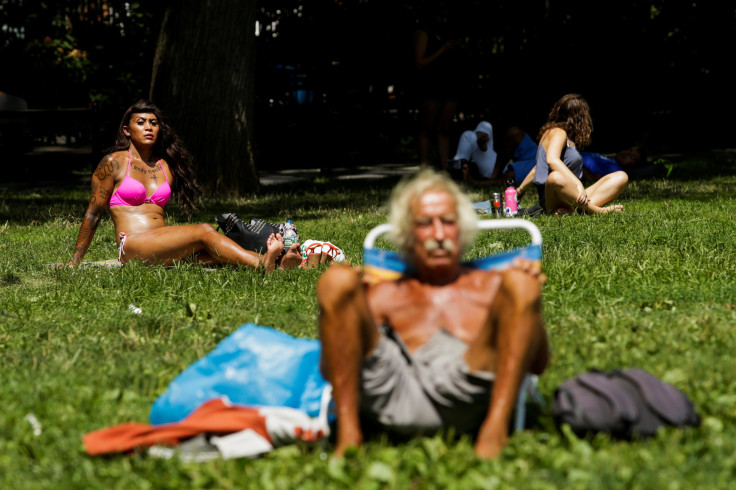Why Heat Waves Are Only Getting Worse

A new study says the summer heat is only going to get worse. According to the research published in Nature Climate Change, about 74 percent of the world’s population will come into contact with deadly heatwaves. Researchers believe that even with a reduction in emissions, nearly half of the world will still be affected.
Scientists reviewed more than 1,900 reports of locations with high temperatures that have resulted in death after 1980. They looked at 783 deadly heat situations and identified at what point temperatures can actually cause death. They found that the area of the planet where this point is reached at least 20 days a year is increasing and will grow even if greenhouse gas emissions slow. According to a release from the University of Hawaii at Manoa, where the study was conducted, roughly 30 percent of the world is in danger due to these conditions.
"We are running out of choices for the future," lead study author Camilo Mora, associate professor of Geography in the College of Social Sciences at the University of Hawaii at Manoa, said in a statement. "For heatwaves, our options are now between bad or terrible. Many people around the world are already paying the ultimate price of heatwaves, and while models suggest that this is likely to continue, it could be much worse if emissions are not considerably reduced. The human body can only function within a narrow range of core body temperatures around 37oC. Heatwaves pose a considerable risk to human life because hot weather, aggravated with high humidity, can raise body temperature, leading to life threatening conditions."
For the analysis, more than 30,000 publications were reviewed with 1,949 cases of deaths linked to excessive heat. Then, they narrowed it down to 783 cases linked to specific dates, spanning 164 cities and 36 countries.
In recent years, the intensity of summer has been written about extensively. Last year, a city in western India endured temperatures reaching 123.8 degrees fahrenheit, the highest ever recorded, according to Business Insider. The heatwave throughout India resulted in hundreds of deaths and destroyed crops. This year, American Airlines had to cancel almost 50 flights due to 120-degree temps in Phoenix, Arizona. Australia had a brutal summer heatwave this year, and the country’s Red Cross warned that hot weather kill more Australians than natural disasters, bushfires and cyclones.
"Climate change has put humanity on a path that will become increasingly dangerous and difficult to reverse if greenhouse gas emissions are not taken much more seriously," Mora said. "Actions like the withdrawal from the Paris agreement is a step in the wrong direction that will inevitably delay fixing a problem for which there is simply no time to waste."
Earlier this month, President Donald Trump revealed he would withdraw the United States from The Paris Accord, an agreement between 195 countries to keep global temperatures from rising 35 degrees fahrenheit. As Vox reports, exceeding that temperature will result in severe weather changes and food and water shortages. Everyone from scientists to CEOs and other world leaders have urged the president to stay in the agreement.
Copyright Medical Daily News Service. All rights reserved.





















